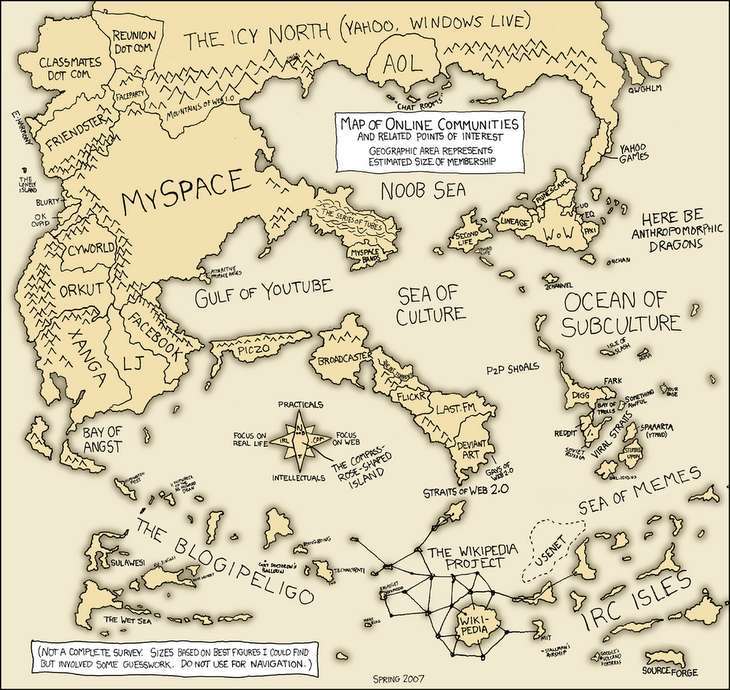Political blogging is nothing new, but a brief visit to BarackObama.com caught me by surprise: visitors can sign up for My.BarackObama.Com, where Obama supporters can create individual profiles, host a blog on-site, find out about local events or create one's own events, participate in fundraiser programs, send and receive messages to other members, and join groups.
The groups section is by far the most compelling. Each group has its own profile, replete with a directory, pertinent events, and a group blog. The third most popular group, "One Million Strong For Barack," actually began on Facebook, and claims to have been the fastest growing group ever on the site, though I don't believe that claim can be qualified.
MoveOn.org is holding a Virtual Town Hall meeting with candidates chosen by voters on the site. The Virtual March on Washington ( http://pol.moveon.org/virtualmarch/ ) displays a GPS visualizer, with pins in counties across the US representing the number of call-ins by citizens working to end the war in Iraq. There is something about being able to view oneself, however abstractly, that adds to its allure. To visually represent solidarity, community, is a powerful tool.
--
Why Do You Tube?
http://www.youtube.com/watch?v=vPl6QeK87sM
--
Google Earth + Second Life = Google Metaverse
http://www.techcrunch.com/2007/01/24/googles-metaverse/
There's a great video detailing Second Life. Evidently, the monetary potential of developing and selling objects in Second Life is huge- a teenager who developed an impressive gun is using the profits (they're about $5 each) to get through college; a woman in Germany buys real estate in Second Life, builds houses and resells the land, making over $170,000 a year.
The lecture can be found here: http://video.google.com/videoplay?docid=-5182759758975402950
Musicians can play live music at clubs and cafes in Second Life, collect tips and sell CDs. Popular venues on Friday nights can pull in an easy 50-100 people. One of the stories in this clip describes a homeless man (real-life homeless) who stayed at a friend's house and started playing his music in Second Life, leaving out a tip jar and informing listeners that he was collecting money to get an apartment again, and eventually made enough to do just that.
As virtual worlds become more seamless, powerful, and ubiquitous, blending media sharing, social networking, geomapping, gaming, open source programming, and the proliferation of knowledge, they will come to replicate society in a more communal, global manner. Businesses, governments, libraries, and universities are evolving in new ways in this virtual world. This might have to become more of a focus in my project...
"We believe this is better than the real world in a lot of ways... We don't see this as a game, we see this as a platform that is in many ways better than the real world."
March 29, 2007
Subscribe to:
Comments (Atom)





